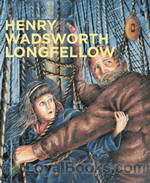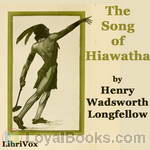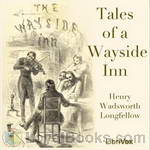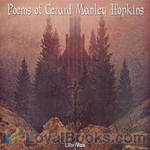|
Books Should Be Free Loyal Books Free Public Domain Audiobooks & eBook Downloads |
|
|
Books Should Be Free Loyal Books Free Public Domain Audiobooks & eBook Downloads |
|
Poetry |
|---|
|
Book type:
Sort by:
View by:
|
By: Henry Wadsworth Longfellow (1807-1882) | |
|---|---|
 Henry Wadsworth Longfellow Collection Vol. 001
Henry Wadsworth Longfellow Collection Vol. 001
A collection to celebrate Henry Wadsworth Longfellow’s 200th birthday, on 27th February, 2007. | |
 Hiawatha
Hiawatha
I sing the Song of Hiawatha,Brave of heart and strong of arm.Daughter’s son of old Nokomis,Fathered by the harsh West Wind. With its regular, beating rhythm, the Song of Hiawatha has often been parodied, but in truth, it is a powerful, emotional epic; a hero’s life, his loves and suffering. The legends and traditions of the North American Indian swirl together through the tale like a mountain stream, tumbling white over the rocks, and caressing the mossy tree roots. | |
 Evangeline
Evangeline
Evangeline is one of Longfellow’s most popular poems and was once a great favorite with the American people. For many years almost every school child studied this poem during the middle school years. Although the decline of the reputation of the once-idolized poet has also brought neglect to this classic, it is still a very touching and expertly written work of art. It is based upon the tragic expulsion of the French settlers from Acadia (located in the Canadian maritime provinces) during the French & Indian War (1754-1763)... | |
 Tales of a Wayside Inn
Tales of a Wayside Inn
Mostly a collection of story-telling poems told by a group of friends in a tavern late one night. "Tales" includes the famous Paul Revere's ride, together with poems of many tales, countries and styles. | |
 Rainy Day
Rainy Day
MANUAL OF SURGERY, OXFORD MEDICAL PUBLICATIONSBY ALEXIS THOMSON, F.R.C.S.Ed.PREFACE TO SIXTH EDITION Much has happened since this Manual was last revised, and many surgical lessons have been learned in the hard school of war. Some may yet have to be unlearned, and others have but little bearing on the problems presented to the civilian surgeon. Save in its broadest principles, the surgery of warfare is a thing apart from the general surgery of civil life, and the exhaustive literature now available on every aspect of it makes it unnecessary that it should receive detailed consideration in a manual for students... | |
 The Song of Hiawatha An Epic Poem
The Song of Hiawatha An Epic Poem
| |
 The Children's Longfellow Told in Prose
The Children's Longfellow Told in Prose
| |
 Evangeline with Notes and Plan of Study
Evangeline with Notes and Plan of Study
| |
 Wreck of the Hesperus
Wreck of the Hesperus
LibriVox volunteers bring you ten recordings of "The Wreck of the Hesperus” by Henry Wadsworth Longfellow,the Fortnightly Poem for August 31, 2014. May we each be spared from the wreck of pride on the reef of Norman's Woe. | |
 Kéramos : and other poems
Kéramos : and other poems
This is a collection of 51 poems by Henry Wadsworth Longfellow. which include many sonnets, plus 7 translations of poems by Virgil, Ovid, Michael Angelo and others. The signature 20 minute poem, Kéramos, whisks us on an imaginary magic cloak around Europe to visit the most famous potteries of olden times, and the many edifices their ceramic art adorns and/or commemorates. Keramos is a name still used today for the study of ceramic materials both for art and for technology. 2-17 are grouped under... | |
 Devil's Bridge
Devil's Bridge
Taken from Poems of Places: An Anthology in 31 Volumes, Switzerland and Austria: Vol. XVI, edited by Henry Wadsworth Longfellow. | |
 Nature
Nature
volunteers bring you 25 recordings of Nature, by Henry Wadsworth Longfellow. This was the Weekly Poetry project for June 20th, 2021. ------ This nostalgic poem says a lot in a few words -- masterfully comparing a mother putting her child to bed for the night, with an elderly life approaching its natural end. | |
 Poems on Slavery
Poems on Slavery
This is a short volume of abolitionist poetry by Henry Wadsworth Longfellow, first published in 1842. As Wikipedia notes, Longfellow himself was not entirely satisfied with his work: "However, as Longfellow himself wrote, the poems were 'so mild that even a Slaveholder might read them without losing his appetite for breakfast'. A critic for The Dial agreed, calling it 'the thinnest of all Mr. Longfellow's thin books; spirited and polished like its forerunners; but the topic would warrant a deeper tone'... | |
By: Herbert Allen Giles (1845-1935) | |
|---|---|
 Chinese Poetry in English Verse (古今詩選)
Chinese Poetry in English Verse (古今詩選)
Dear Land of Flowers, forgive me! -- that I tookThese snatches from thy glittering wealth of song, And twisted to the uses of a book Strains that to alien harps can na'er belong. Thy gems shine purer in their native bed Concealed, beyond the pry of vulgar eyes; And there, through labyrinths of language led, The patient student grasps the glowing prize. Yet many, in their race toward other goals, May joy to feel, albeit at second-hand, Some far faint heart-throb of poetic souls Whose breath makes incense in the flowery Land. Introductory poem by H.A.G. | |
By: Herbert Bashford (1871-1928) | |
|---|---|
 Wolves of the Sea and other Poems
Wolves of the Sea and other Poems
This is a little volume of poetry by Herbert Bashford. The subjects and style of the poems are varied, but most share a dark tone. The titular Sea appears in many of the poems as well, connecting the poems in this volume to one another. - Summary by Carolin | |
By: Herbert Trench (1865-1923) | |
|---|---|
 She Comes Not
She Comes Not
Frederic Herbert Trench was an Irish poet. A number of his poems were set set to music and he moved into theatrical work for a few years. - Summary by Wikipedia | |
By: Herman George Scheffauer (1878-1927) | |
|---|---|
 The Masque of the Elements
The Masque of the Elements
| |
By: Hezekiah Butterworth (1839-1905) | |
|---|---|
 The Story of the Hymns and Tunes
The Story of the Hymns and Tunes
| |
By: Hilaire Belloc (1870-1953) | |
|---|---|
 Cautionary Tales for Children
Cautionary Tales for Children
| |
By: Hilda Conkling (1910-1986) | |
|---|---|
 Poems By a Little Girl
Poems By a Little Girl
| |
By: Hilmar R. (Hilmar Robert) Baukhage (1889-) | |
|---|---|
 "I was there" with the Yanks on the western front, 1917-1919
"I was there" with the Yanks on the western front, 1917-1919
| |
By: Homer | |
|---|---|
 The Odyssey
The Odyssey
A wandering king who's a war-hero doomed to roam the earth by a vengeful God, a plethora of fantastic experiences, a wife battling the invasion of suitors who wish to replace her missing husband, a son in search of his father - the Odyssey is a rich tapestry of incredible experiences and unforgettable characters. A must-read classic for anyone who wants to understand the fundamentals of Western mythology, it is a sequel to the Illiad which recounts the magnificent saga of the Trojan War. The Odyssey continues on, describing the trials and tribulations of the Greeks under the leadership of Odysseus... | |
 The Iliad
The Iliad
A divinely beautiful woman who becomes the cause of a terrible war in which the gods themselves take sides. Valor and villainy, sacrifices and betrayals, triumphs and tragedies play their part in this three thousand year old saga. The Iliad throws us right into the thick of battle. It opens when the Trojan War has already been raging for nine long years. An uneasy truce has been declared between the Trojans and the Greeks (Achaeans as they're called in The Iliad.) In the Greek camp, Agamemnon the King of Mycenae and Achilles the proud and valiant warrior of Phthia are locked in a fierce contest to claim the spoils of war... | |
By: Hopkins, Gerard Manley (1844-1889) | |
|---|---|
 Poems of Gerard Manley Hopkins, ed. Robert Bridges
Poems of Gerard Manley Hopkins, ed. Robert Bridges
Gerard Manley Hopkins (1844–89) was an English poet, educated at Oxford. Entering the Roman Catholic Church in 1866 and the Jesuit novitiate in 1868, he was ordained in 1877. Upon becoming a Jesuit he burned much of his early verse and abandoned the writing of poetry. However, the sinking in 1875 of a German ship carrying five Franciscan nuns, exiles from Germany, inspired him to write one of his most impressive poems “The Wreck of the Deutschland.” Thereafter he produced his best poetry, including “God’s Grandeur,” “The Windhover,” “The Leaden Echo,” and “The Golden Echo.” | |
By: Horace Smith (1836-1922) | |
|---|---|
 Interludes being Two Essays, a Story, and Some Verses
Interludes being Two Essays, a Story, and Some Verses
| |
By: Horatio Alger, Jr. (1832-1899) | |
|---|---|
 Grand'ther Baldwin's Thanksgiving, with Other Ballads and Poems
Grand'ther Baldwin's Thanksgiving, with Other Ballads and Poems
Horatio Alger, better known for his juvenile fiction, also penned some great poetry. His Ballads, including the 8 war poems and his odes, are collected in this volume. | |
By: Howard D. Pollyen | |
|---|---|
 The Secret of the Creation
The Secret of the Creation
| |
By: Howard Saxby (1854-1923) | |
|---|---|
 Dulcamara
Dulcamara
This is a collection of poetry and prose by Howard Saxby. These pieces are the sort of stories and poems that can be enjoyed by children because the humour in them is universal, but they are more geared towards adults. The themes and intent of the pieces are varied, with humour prevailing in most items. - Summary by Carolin | |
By: Howard V. (Howard Vigne) Sutherland (1868-) | |
|---|---|
 Out of the North
Out of the North
| |
By: Hubert G. (Hubert Gibson) Shearin (1878-) | |
|---|---|
 A Syllabus of Kentucky Folk-Songs
A Syllabus of Kentucky Folk-Songs
| |
By: Hurlothrumbo | |
|---|---|
 The Merry-Thought: or the Glass-Window and Bog-House Miscellany Parts 2, 3 and 4
The Merry-Thought: or the Glass-Window and Bog-House Miscellany Parts 2, 3 and 4
| |
 The Merry-Thought: or the Glass-Window and Bog-House Miscellany. Part 1
The Merry-Thought: or the Glass-Window and Bog-House Miscellany. Part 1
| |